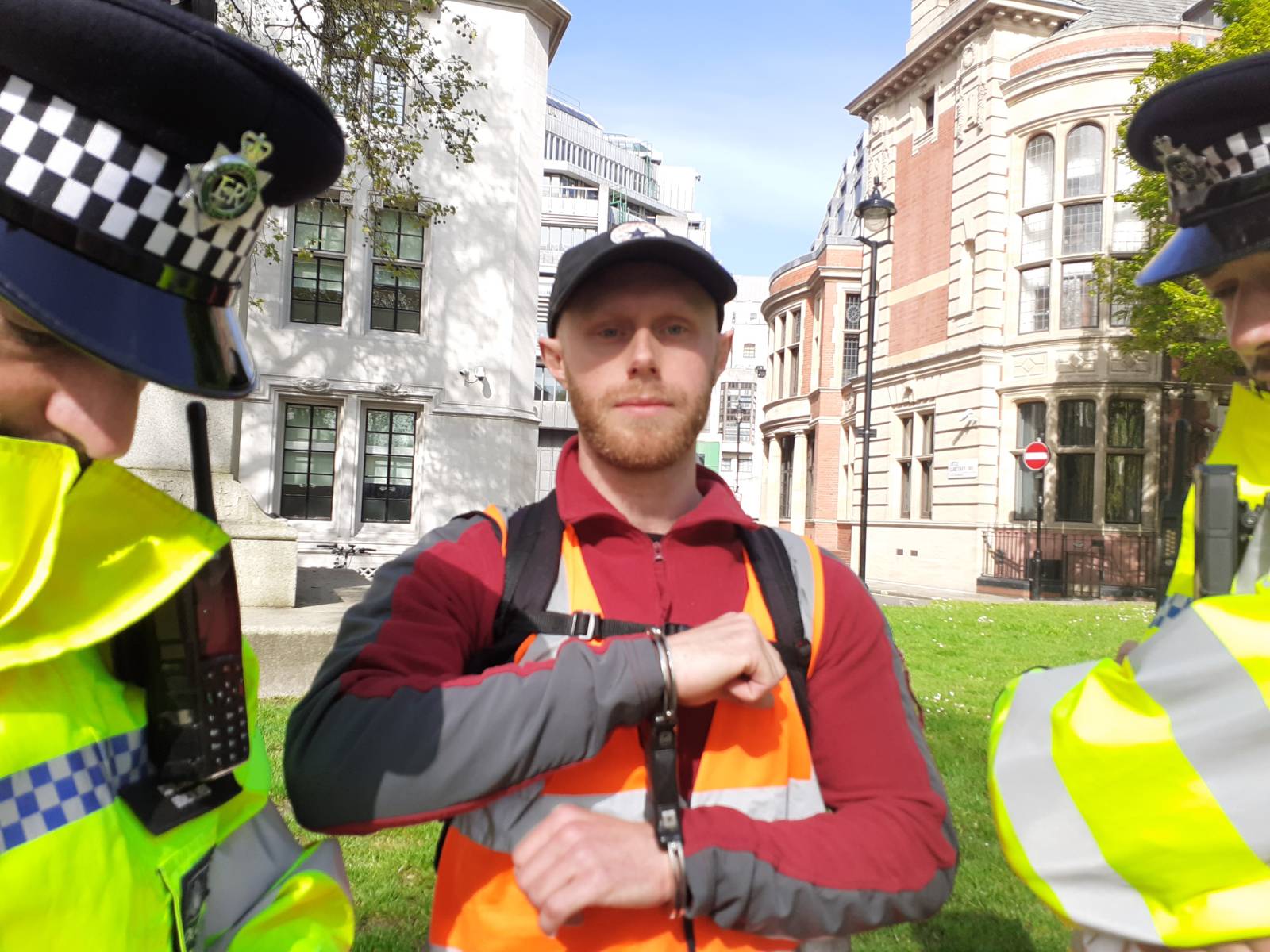The Met Police has been accused of using bail conditions to bar people from protesting, even when they have not been charged with breaking the law, after the arrests of Just Stop Oil protesters in the wake of the coronation and passage of the Public Order Act.
A pair of Just Stop Oil activists arrested for a “slow-walking” protest said they were detained for breaching a section 12 order by refusing to leave a road and given bail conditions preventing them from protests involving roads in Westminster until August, despite not being charged.
It is the latest in a series of controversies over police clampdowns on protests, with the Met under fire for arresting anti-monarchy protesters, women’s safety volunteers and even a random pedestrian around the coronation. The incidents show “the police at their most confused and inept”, said Kat Hobbs, a spokesperson from the Network for Police Monitoring.
“This is a clear use of bail to stop effective protest without any proof of guilt,” said George Hibberd, one of 13 Just Stop Oil activists arrested on May 11. The Met’s actions were “so draconian considering we haven’t even been charged or proved guilty in any way of committing a crime”, Hibberd told The Big Issue.
“It’s a pure and simple strategy to quash protest and dissent.”
Another, Adrien Châtelain, said: “They’re realising that, if the goal is just to get us off the streets, they don’t actually need to arrest us for breaking the law. They can make up whatever they like at the time, or even not state the reason for the arrest.”
Châtelain added: “That keeps you off the streets, first of all on that day for, say 20 hours, and with these repressive bail conditions they can prevent you from protesting.”
The Met did not comment on the allegations of bail misuse, but confirmed it had arrested 13 Just Stop Oil protesters who refused to leave the road after a section 12 condition was placed upon them.
Hibberd, Châtelain and others were part of a protest which formed part of Just Stop Oil’s new “slow walking” tactic, walking slowly with banners along roads in Central London.
After warnings from police, some activists left the road, but Châtelain remained, who said they and others “had put ourselves forward to challenge these new measures and to demonstrate our commitments to getting some sort of change.”
Police arrested 13 protesters who refused to move out of the road, and who the Met said were “causing serious disruption to traffic”. The protesters were arrested for breaching a notice under section 12 of the Public Order Act 1986, which carries a maximum prison sentence of 51 weeks.
They were then taken to a police station and then released at 4am “for no discernible reason”, with bail conditions not to protest on the roads in the City of Westminster until their bail recall date on August 10.
Just Stop Oil said other arrested activists were given bail conditions barring them from entering the City of Westminster.
“It’s a clear overstep. It’s a clear restriction on our human right to protest. These bail conditions have been enforced, despite the fact that they haven’t formally charged us with anything, and that they didn’t even interview me,” Châtelain said.
“So it’s quite clear to me that it’s just a mechanism by which they can try to silence us and to stop us from speaking about this government’s plan to licence all of these oil sites.”

The arrests come after the passage of a controversial new law designed to tackle “disruptive” protests.
Powers granted by 2022’s Police, Crime, Sentencing and Courts Act already allowed police to impose conditions when a protest may result in “serious disruption”, through a notice under section 12 of the Public Order Act 1986 – the notice applied to restrict Just Stop Oil’s slow walking protests.
A new law, section 34 of the Public Order Act 2023 introduced a more specific definition of serious disruption, setting out a list of delays and disruptions that meet the threshold, such as if physical obstruction “prevented, or hindered to more than a minor degree” anybody carrying out their day-to-day activities, or caused anything more than a minor delay to a “time-sensitive product”. This part of the law, along with other protest-related offences, was given “early commencement” and rushed into force in time for the coronation.
However, Labour peer Shami Chakrabarti said the police were under political pressure to clamp down on protests, regardless of specific new powers.
In recent weeks, Suella Braverman has accused police of being seen to side with “militant protesters”, and said the Public Order Act would deal with those who “attack our ways of life repeatedly”.
“It’s far from clear that the new Public Order Act was actually needed for the most recent arrests,” Chakrabarti told The Big Issue.
“And the police need not bother with courts if they can arrest, release and restrict people’s movements for months on end with bail conditions. The Home Secretary uses new laws like press releases. The real purpose is to instruct the police to shut down peaceful protest as part of her culture war and Tory leadership bid.”
Kat Hobbs of NetPol said the arrests fit into a recent spate of incidents showing police misusing their powers.
“The government has used recent anti-protest laws to send a clear signal to the police – who already see demonstrations as little more than a nuisance – to encourage them to adopt a greater degree of intolerance towards protesters. And whenever the police get new powers, the first thing we see is the misuse of those powers,” Hobbs said.
“This incident and the handling of the #NotMyKing coronation arrests show the police at their most confused and inept. This kind of punishing attitude towards protest directly challenges our right to protest.”
Source : Big Issue




